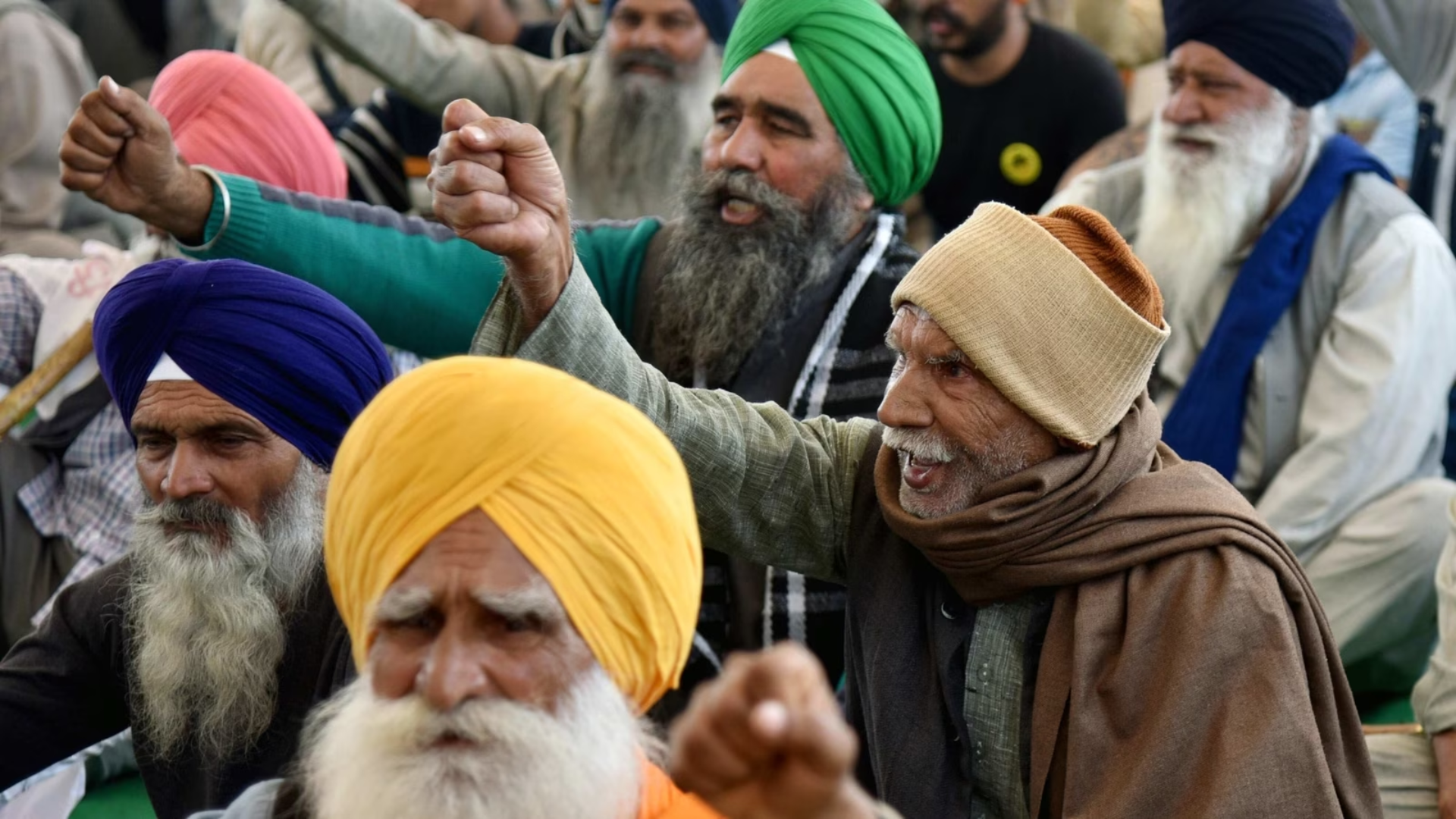Amid ongoing protests, farmer unions pledge to escalate the agitation as demonstrations reach Day 5.
With tens of thousands of farmers demanding guaranteed crop prices and debt relief, the situation remains tense along the Punjab and Haryana’s Shambhu Border. The farmers are encamped en route to the national capital, Delhi, and are scheduled to meet government officials on February 18 for the fourth round of talks.
Despite the nationwide strike declared by the protesting farmers’ unions, the standoff persists, marked by tear gas shelling and stone pelting by police. The protest, now in its fourth day, saw disruptions across various sectors due to the Gramin Bharat Bandh called by the farmers.
Following discussions on Thursday night, farmer leaders announced that while the dispute remains unresolved, both sides agreed to maintain peace and continue working towards a solution to the farmers’ demands.
The ongoing strike is causing concerns about potential shortages in urban areas, particularly in milk and vegetable supplies, and disruptions in transportation services due to the participation of central trade unions in the bandh. The availability of state buses is contingent upon the involvement of local unions in the strike.
Farmer leader Jagjit Singh Dallewal affirmed that the agitation would persist peacefully, without provocation from either side.
On Friday, additional farm groups and trade unions joined in a one-day national strike in solidarity with the farmers’ demands.
Following the Bharat Bandh, the protesting farmers resumed their agitation on Day 5, maintaining their stance on various demands, including a guarantee of Minimum Support Price (MSP) for crops.
The Samyukt Kisan Morcha (SKM) announced plans to intensify the agitation in the coming days. The Punjab unit of SKM will convene a meeting in Jalandhar on Sunday, followed by meetings of the National Coordination Committee (NCC) and the general body in Delhi to assess developments and chart the future course of action.
Recent developments saw Haryana Police firing tear gas shells to disperse protesting farmers near the Shambhu border, with talks between farmer leaders and the government failing to yield significant progress.
Despite several rounds of discussions, including on February 8, 12, and 15, a resolution remains elusive, with farmers insisting on a guarantee of MSP for crops.
The agitation took a tragic turn with the reported death of a Haryana Police sub-inspector, Hira Lal, posted at the Shambhu border, highlighting the escalating tensions.
The ‘Bharat Bandh’ witnessed disruptions across various states, including blockades on national highways, toll plaza sieges, and protests against the government’s handling of farmers’ issues.
In response to the government’s alleged secrecy in negotiations and failure to fulfill promises made during previous protests, the SKM criticized the authorities’ approach.
Accusing the government of undermining farmers’ concerns, the SKM announced plans to intensify the agitation with coordinated actions involving workers and other sections of society.
The farmers’ demands include a legal guarantee for MSP, implementation of the Swaminathan Commission’s recommendations, pension for farmers and farm laborers, debt waivers, no hike in electricity tariffs, withdrawal of police cases, justice for victims of past violence, reinstatement of the Land Acquisition Act, and compensation for families of deceased farmers.
In conclusion, the ongoing protests underscore the farmers’ determination to secure their rights and address longstanding grievances, highlighting the need for meaningful dialogue and constructive action to resolve the impasse.
















